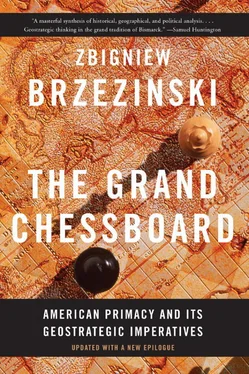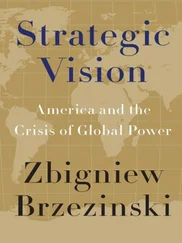In contrast, Russia was held in cultural contempt by most of its Central European vassals and even more so by its principal and increasingly assertive eastern ally, China. For the Central Europeans, Russian domination meant isolation from what the Central Europeans considered their philosophical and cultural home: Western Europe and its Christian religious traditions. Worse than that, it meant domination by a people whom the Central Europeans, often unjustly, considered their cultural inferior.
The Chinese, for whom the word “Russia” means “the hungry land,” were even more openly contemptuous. Although initially the Chinese had only quietly contested Moscow’s claims of universality for the Soviet model, within a decade following the Chinese Communist revolution they mounted an assertive challenge to Moscow’s ideological primacy and even began to express openly their traditional contempt for the neighboring northern barbarians.
Finally, within the Soviet Union itself, the 50 percent of the population that was non-Russian eventually also rejected Moscow’s domination. The gradual political awakening of the non-Russians meant that the Ukrainians, Georgians, Armenians, and Azeris began to view Soviet power as a form of alien imperial domination by a people to whom they did not feel culturally inferior. In Central Asia, national aspirations may have been weaker, but here these peoples were fueled in addition by a gradually rising sense of Islamic identity, intensified by the knowledge of the ongoing decolonization elsewhere.
Like so many empires before it, the Soviet Union eventually imploded and fragmented, falling victim not so much to a direct military defeat as to disintegration accelerated by economic and social strains. Its fate confirmed a scholar’s apt observation that
[e]mpires are inherently politically unstable because subordinate units almost always prefer greater autonomy, and counter-elites in such units almost always act, upon opportunity, to obtain greater autonomy. In this sense, empires do not fall ; rather, they fall apart , usually very slowly, though sometimes remarkably quickly. [1]
The collapse of its rival left the United States in a unique position. It became simultaneously the first and the only truly global power. And yet America’s global supremacy is reminiscent in some ways of earlier empires, notwithstanding their more confined regional scope. These empires based their power on a hierarchy of vassals, tributaries, protectorates, and colonies, with those on the outside generally viewed as barbarians. To some degree, that anachronistic terminology is not altogether inappropriate for some of the states currently within the American orbit. As in the past, the exercise of American “imperial” power is derived in large measure from superior organization, from the ability to mobilize vast economic and technological resources promptly for military purposes, from the vague but significant cultural appeal of the American way of life, and from the sheer dynamism and inherent competitiveness of the American social and political elites.
Earlier empires, too, partook of these attributes. Rome comes first to mind. Its empire was established over roughly two and a half centuries through sustained territorial expansion northward and then both westward and southeastward, as well as through the assertion of effective maritime control over the entire shoreline of the Mediterranean Sea. In geographic scope, it reached its high point around the year A.D. 211 (see map on page 11). Rome’s was a centralized polity and a single self-sufficient economy. Its imperial power was exercised deliberately and purposefully through a complex system of political and economic organization. A strategically designed system of roads and naval routes, originating from the capital city, permitted the rapid redeployment and concentration—in the event of a major security threat—of the Roman legions stationed in the various vassal states and tributary provinces.
At the empire’s apex, the Roman legions deployed abroad numbered no less than three hundred thousand men—a remarkable force, made all the more lethal by the Roman superiority in tactics and armaments as well as by the center’s ability to direct relatively rapid redeployment. (It is striking to note that in 1996, the vastly more populous supreme power, America, was protecting the outer reaches of its dominion by stationing 296,000 professional soldiers overseas.)
Rome’s imperial power, however, was also derived from an important psychological reality. Civis Romanus sum —“I am a Roman citizen”—was the highest possible self-definition, a source of pride, and an aspiration for many. Eventually granted even to those not of Roman birth, the exalted status of the Roman citizen was an expression of cultural superiority that justified the imperial power’s sense of mission. It not only legitimated Rome’s rule, but it also inclined those subject to it to desire assimilation and inclusion in the imperial structure. Cultural superiority, taken for granted by the rulers and conceded by the subjugated, thus reinforced imperial power.
That supreme, and largely uncontested, imperial power lasted about three hundred years. With the exception of the challenge posed at one stage by nearby Carthage and on the eastern fringes by the Parthian Empire, the outside world was largely barbaric, not well organized, capable for most of the time only of sporadic attacks, and culturally patently inferior. As long as the empire was able to maintain internal vitality and unity, the outside world was noncompetitive.
Three major causes led to the eventual collapse of the Roman Empire. First, the empire became too large to be governed from a single center, but splitting it into western and eastern halves automatically destroyed the monopolistic character of its power. Second, at the same time, the prolonged period of imperial hubris generated a cultural hedonism that gradually sapped the political elite’s will to greatness. Third, sustained inflation also undermined the capacity of the system to sustain itself without social sacrifice, which the citizens were no longer prepared to make. Cultural decay, political division, and financial inflation conspired to make Rome vulnerable even to the barbarians in its near abroad.
By contemporary standards, Rome was not truly a global power but a regional one. However, given the sense of isolation prevailing at the time between the various continents of the globe, its regional power was self-contained and isolated, with no immediate or even distant rival. The Roman Empire was thus a world unto itself, with its superior political organization and cultural superiority making it a precursor of later imperial systems of even greater geographic scope.
Even so, the Roman Empire was not unique. The Roman and the Chinese empires emerged almost contemporaneously, though neither was aware of the other. By the year 221 B.C. (the time of the Punic Wars between Rome and Carthage), the unification by Chin’ of the existing seven states into the first Chinese empire had prompted the construction of the Great Wall in northern China, to seal off the inner kingdom from the barbarian world beyond. The subsequent Han Empire, which had started to emerge by 140 B.C., was even more impressive in scope and organization. By the onset of the Christian era, no fewer than 57 million people were subject to its authority. That huge number, itself unprecedented, testified to extraordinarily effective central control, exercised through a centralized and punitive bureaucracy. Imperial sway extended to today’s Korea, parts of Mongolia, and most of today’s coastal China. However, rather like Rome, the Han Empire also became afflicted by internal ills, and its eventual collapse was accelerated by its division in A.D. 220 into three independent realms.
Читать дальше












